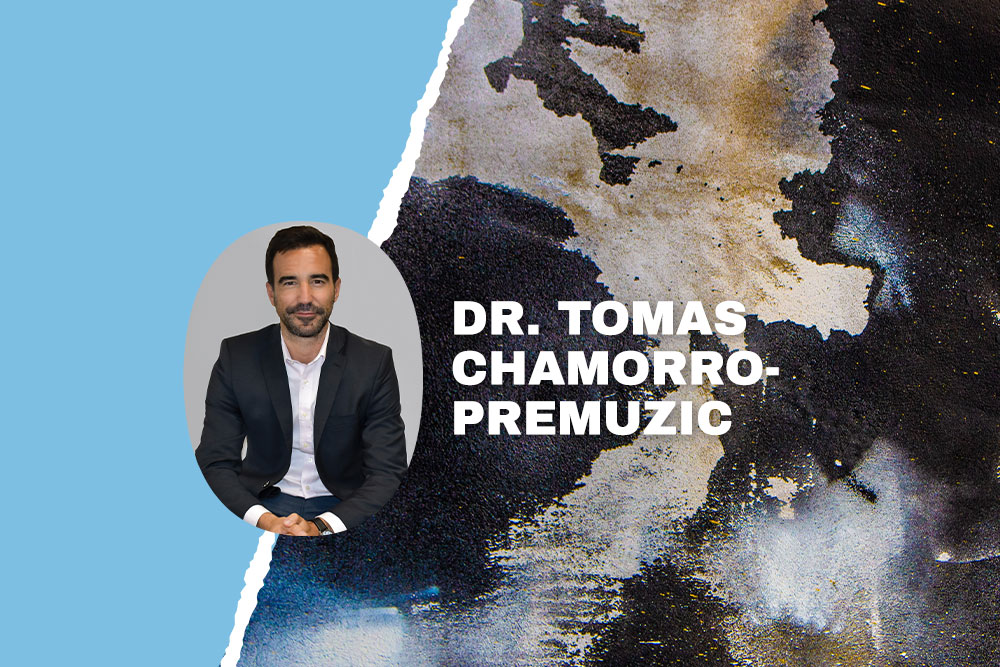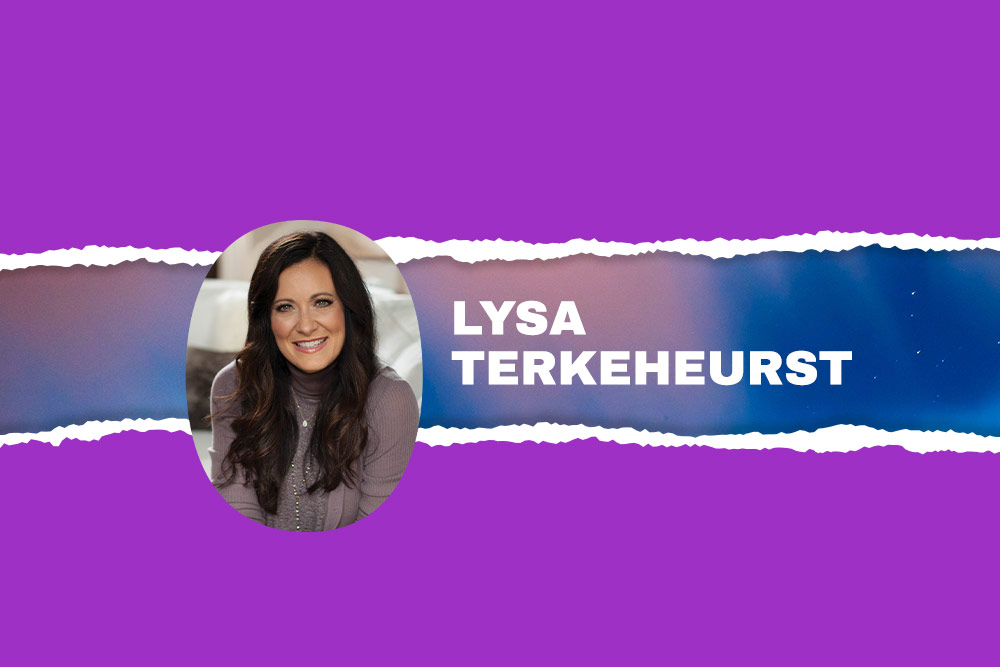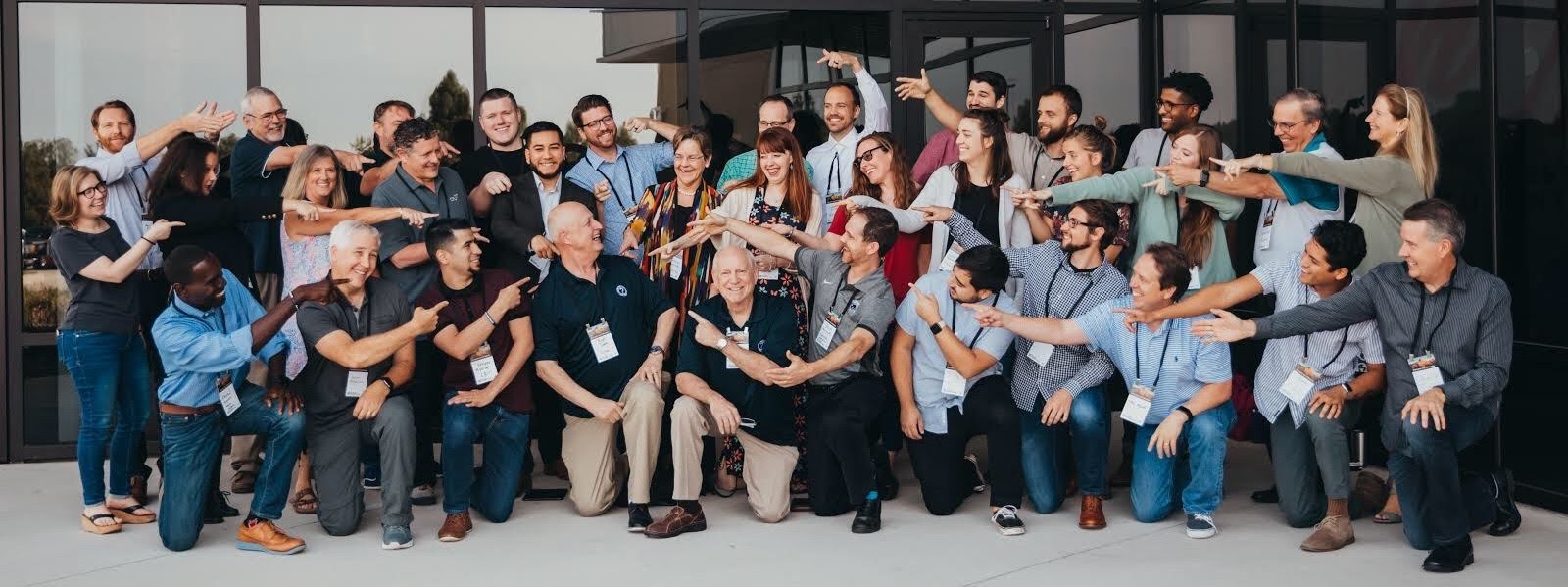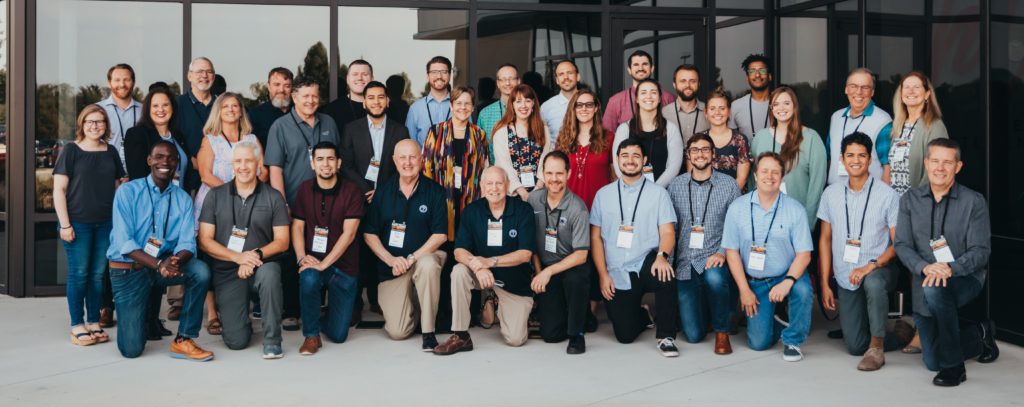
This article is a part of The Global Leadership Summit Faculty Spotlight series where we feature content from the upcoming #GLS20 speakers. This is a great opportunity to get a taste of what to expect from these amazing leaders!
The GLS team is excited to welcome to #GLS20 Dr. Tomas Chamorro Premuzic, an international authority on psychological profiling, talent management and leadership development. He will be sharing his new research into the beneficial traits of curiosity and humility.
Get a sneak peak of Dr. Tomas in his TED talk on The Power of Negative Thinking.
Few traits are celebrated as much as confidence, particularly in the West. This is less evident in Asian societies, where expertise, self-knowledge and humility are valued more, but the tendency to glorify higher levels of self-confidence and self-belief, even if they are unrealistic, is increasingly universal.
So, for instance, much of the popular advice focused on helping people become leaders is based on the premise that if people believe in themselves, they will in turn make others believe in them, too. Adopt a can-do attitude, the story goes, be a hero in your own mind, lean in, change your mindset, and anything will be possible. Oh, and don’t worry about what people think of you: if you think you are great, you are!
There are three big problems with the advice to “believe in yourself”:
1. The first problem is that there is only a trivial relationship between confidence—how good people think they are—and competence, how good they actually are.
Scientific research correlating measures of self-perceived and actual ability across a wide range of talent domains (e.g., math, music, IQ, creativity, sense of humor and driving skills) suggests there is merely a 9% overlap between people’s confidence and their competence, which means that most of the time we are forced to pick between one or the other.
I don’t know about you, but personally I would rather have a doctor, driver, teacher or financial advisor who is competent rather than confident, and I think the same logic must surely apply to leaders.
2. The second problem is that the advice is hard to follow.
We can’t just wake up one day and somehow decide to be more confident or boost our levels of self-belief, at least not without engaging in a significant amount of reality distortion (some substances tend to help here).
Again, if we look at the actual science of confidence, rather than the myths propagated by the self-help industry, we can see that most of the variability between people’s confidence levels—and the reason why it is obvious that some people have more of it than others—is due to people’s inherent personality or temperament, rather than deliberate or conscious efforts to elevate one’s confidence.
So, when we tell people that all they have to do in order to become a leader is to be more confident, and people believe us, they will most likely end up frustrated for failing to accomplish that goal. It’s a bit like asking people to be someone else. When people believe that this ought to be a simple task, and that their future career success is not just in their hands, but merely dependent on changing their self-views, they will end up feeling bad when they fail to achieve this allegedly simple task. “They could be anything they wanted, if only they believed in themselves, yet they are so inept that they cannot even believe in themselves!” Or perhaps their main issue is that they don’t want it enough.
The more we perpetuate the myth that people’s success is in their own hands—as if differences in social class, privilege, temperament and talent didn’t constrain (and augment) our potential and our opportunities—the more guilt we make people feel when they fail to achieve their dreams. It’s akin to telling them that if they don’t manage, it’s just their fault.
3. The third problem is that it does sometimes work.
That is, there are indeed times when people do manage to advance in their careers and climb up the ladder, because of their inflated egos, to everyone else’s detriment.
When we select or pick leaders on the basis of their confidence rather than competence, we end up with people in charge who are overconfident, unaware of their limitations, unjustifiably pleased with themselves and prone to taking reckless risks, making avoidable mistakes, blaming others for their own mistakes and taking credit for other people’s achievements.
If you think this profile is quite common in politicians, that is because we tend to select them on confidence and charisma rather than competence and integrity, and unfortunately the business world is not much different. After all, political skills are not only found in politicians, and they are a common career lubricant in any group or organization. And since confidence and overconfidence are generally higher (and much more celebrated) in men than women, men over-index in leadership roles, particularly when they are not competent.
To be sure, there is no inherent problem having leaders who are confident and charismatic, so long as they are also competent and ethical, but our selection methods (from televised debates to job interviews) focus so much on style, that we end up overlooking substance. Alas, all-style-and-no-substance will get you farther than no-style-and-all-substance.
When we pick leaders on the basis of their superlative confidence, we should not be surprised that individuals with narcissistic and psychopathic tendencies are over-represented in the leadership ranks
When we pick leaders on the basis of their superlative confidence, we should not be surprised that individuals with narcissistic and psychopathic tendencies are over-represented in the leadership ranks, or that few traits are as emblematic of leadership incompetence as arrogance, a surplus of confidence. Delusions of grandeur and megalomania pay off for a simple reason: it is much easier to deceive others when you have already managed to deceive yourself.
Confidence is a double-edge sword
Confidence is a double-edge sword, distorting leaders’ self-awareness and inflating their self-concept and fantasized talents, while at the same time fooling others into believing their delusion. The main advantage high self-confidence confers is to help people hide their incompetence. This is quite common in leaders, because they generally have too much of it.
And it’s not really their fault, so we shouldn’t blame them for being chosen. We should blame ourselves or the people who select them for displaying the very traits that contribute to their downfall, perhaps due to an inability to focus on what actually matters: talent. It is a lot easier to measure confidence than actual competence or expertise, and it takes competence to spot and stop incompetence.
To be clear, I’m not implying that the world would be better off if leaders were pathologically insecure, phobic, or fearful—but we are pretty much at the opposite extreme right now. In a logical world, we would select leaders not just on the basis of their competence, but also when their confidence levels are in-sync with their actual talents, so they are capable of self-awareness, understanding their limitations and able to accept their mistakes with humility in order to adjust their future behaviors and get better. The best level of confidence a leader can have, especially for those who follow or depend on her, is that which enables leaders to make an accurate evaluation of risks and opportunities, know what they don’t know and possess a level of judgment that is superior to her team, followers or organization.
Most people have too much rather than too little confidence
Contrary to what you may think if you take a look at the vast collection of self-help books devoted to boosting people’s confidence, humanity is not insecure. In fact, research across multiple paradigms in psychology, from behavioral economics to neuroscience, suggests that most people have too much rather than too little confidence, and social psychologist have shown for decades that there is a universal bias, called self-enhancement, whereby our preference for thinking highly of ourselves exceeds our interest in understanding reality.
So, yes, there is a case for lowering leaders’ confidence.
Because we select them on confidence, they have too much of it, and because that actually makes them less competent, they would benefit from a reality-check, which can only come from feedback that enables them to adjust their self-perceived talents downwards, so that they are aligned with their actual talents.
We should spend less time flattering, and more time flattening, leaders’ egos.
It would make them better and everyone would benefit from it.
An even better option would be to select individuals for leadership roles when they are competent rather than confident, not least because overconfident leaders are often immune to the critical feedback they need, to the point that no facts, evidence, or rational arguments may be enough to lower their confidence and make them self-aware. This can be done by focusing more on substance, and less on style. By picking people with good technical expertise, intelligence, curiosity, humility, empathy and integrity, even if they aren’t great at self-promotion, and particularly when they don’t have a distorted sense of their capabilities.
Alas, this is not likely to happen any time soon, at least in the West. This is why the idea that we should lower leaders’ confidence sounds as heretic and controversial today as when I first wrote about it eight years ago. The more overconfident we become as a society, the less open we become to the simple idea that we may not be as good as we think.
As Oliver Burkeman noted, “the solution to a world run by overconfident fools is not to make the other half overconfident too”.
This article originally appeared on Forbes.com.
Join Dr. Tomas Chamorro-Premuzic and other 14 other world-class speakers for The Global Leadership Summit on Thursday and Friday, August 6-7, 2020. Get ready for your two-day infusion of fresh ideas, actionable concepts, leadership principles and heartfelt inspiration from a world-class faculty at a location near you!





 Every year, I feel like I have gotten my money’s worth during the first hour of the event. Everything after that is frosting on the cake! I’ve gotten lessons from almost every GLS talk I have ever heard. But the one that stands out is one I share in the first chapter of my newest book, Now That’s a Great Question.
Every year, I feel like I have gotten my money’s worth during the first hour of the event. Everything after that is frosting on the cake! I’ve gotten lessons from almost every GLS talk I have ever heard. But the one that stands out is one I share in the first chapter of my newest book, Now That’s a Great Question.





Recent Comments